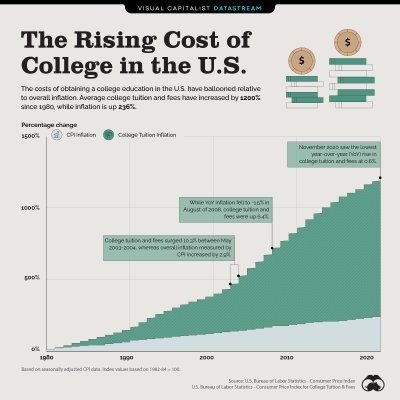Most colleges locked tuition raises as a result of the pandemic. I'm betting you'll see it head higher... As for having 2 children about to start college in the next 5 years, my message to them has been: Max AP courses in HS, push 2yr community/bridge college, then finish at the college of their choice. Its a lot easier to swallow when its 4 semesters vs. 8. And lets be honest, paying a lot of money for the first two years of college is a waste.
As long as we're being honest......
Yes, HS AP classes can take care of a lot of the first year or so of college. My oldest ended up as Soph after her first semester at University and was able to complete a Master's in four years. Definitely helps.
For those who didn't, or couldn't take advantage of AP or Dual Enrollment (hope that's not just a Florida thing), I find the argument against during 4 full years on campus, and away from home to be less persuasive if the funds are available. IMO, one of the reasons to leave home and go to school is to start to prepare for independent adult life. Yes, there is a cost to do so, and it can be mitigated by HS AP classes, community college, etc.
If kids have been prepared during HS beyond academics, I think there is no substitute for sending them away to an appropriate environment to go to school. I'm an older parent, and mine knew they had to get in, get it done, and graduate before I died


 Only "aid" was unsubsidized loans.
Only "aid" was unsubsidized loans.